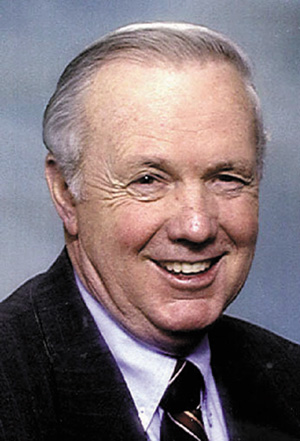No. 642 - DON'T "STIFF" YOUR FRIENDS
No. 642
Jim Davidson -- NEWSPAPER COLUMN
DON’T “STIFF” YOUR FRIENDS
One of the things that can damage human relationships quicker and more severely than anything else, is a little five-letter word called greed. Anytime you see someone who is greedy, you will see someone else who is adversely affected. This is not only true in the case of individuals; it is also true for nations as well. We have a severe credit crunch in our country that is severely affecting our whole economy and seen most readily in the housing market. If you are not personally affected, no doubt you have been watching the national news and know that thousands upon thousands of people are losing their homes because of foreclosure. I’m sad to say, based on everything that I have read and understand, it’s likely to get even worse.
Thanks to a faithful reader up in Galax, Va., who sent me an article written by Robert Morley that appeared in a bi-monthly publication, The Philadelphia Trumpet, titled, “The CON That Turned the World Against America,” I now understand the crisis in the housing market much better than I did before. You may not see what I am going to share with you in the national news, but it’s something every American has the right to know, because it affects each of our lives.
We see this crisis today, but it really started back in the year 2000 when America was facing a recession. But rather than let the economy re-balance, the Federal Reserve decided to slash interest rates to artificially stimulate the economy, even though it knew that doing so would create even bigger problems later. Consequently, mortgage rates in America plummeted. Suddenly millions more Americans could buy homes. House prices skyrocketed, tripling and quadrupling in some areas. The bubble fed on itself as perspective homeowners, often acting more like speculators, rushed to buy homes as quickly as possible.
Now, here is the rub. As home values rose, fewer people could afford traditional loans. To keep their profits growing, banks and lenders began offering easy to get sub-prime mortgages. These are mortgages that would normally be considered “risky” because of the borrower’s credit history, income status and other factors. If the person could sign their own name, often mortgages were approved without any background check. With the building boom, everyone was on cloud nine, as new home construction is what really fuels the American economy. When you consider the lumber, other construction materials and everything that goes into a new home, it’s easy to get the picture.
Realtors did not really mind either, because as home values increased so did their commissions. But alas, when interest rates went back up, the bubble burst and thousands of people could not pay their mortgage, especially some who had an adjustable rate loan. The end result is thousands of foreclosures and people losing their homes. The Federal Government stepped in with programs to help a few people, but that was only a small part of the solution. But wait, this is only the beginning of the problem. The big banks and mortgage lenders were sitting there with thousands and thousands of sub-prime mortgages. In short, they wanted to get rid of these risky mortgages and get them off their books.
They could not sell them in America, because everyone was already maxed out, so they turned to another source of capitol … foreigners. Here is where greed really takes over. What these financial institutions did was package and bundle these risky sub-prime loans to make them appear as good, safe investments. They were even paying rating agencies like Moody’s and Standard & Poor’s to give mortgage securities higher valuations than regular sub-prime would typically rate.
Well, the foreigners bought them, and this created a financial crisis in Europe as well. In Britain, Northern Rock Plc., the nation’s fifth-largest mortgage lender, experienced an unprecedented bank run as customers lined up for hours to clamor for their money when it was revealed that it was having trouble accessing enough credit to continue normal operations.
There is a lot more in this article than I am able to share with you, but there is a backlash that is taking place that is going to have long-term repercussions.
Our whole financial system, as well as our currency, is based on trust, and without it we are the big losers. As I said earlier, everyone in our nation is affected by the lack of it. Regardless of where they are to be found, financial or otherwise, you don’t “stiff” your friends. Based on where we are today, have you ever thought about where we would be if other countries quit lending us money?
---
(EDITOR'S NOTE: Jim Davidson is a public speaker and syndicated columnist. You may contact him at 2 Bentley Drive, Conway, AR 72034. To support literacy, buy his book: “Learning, Earning & Giving Back.”)
